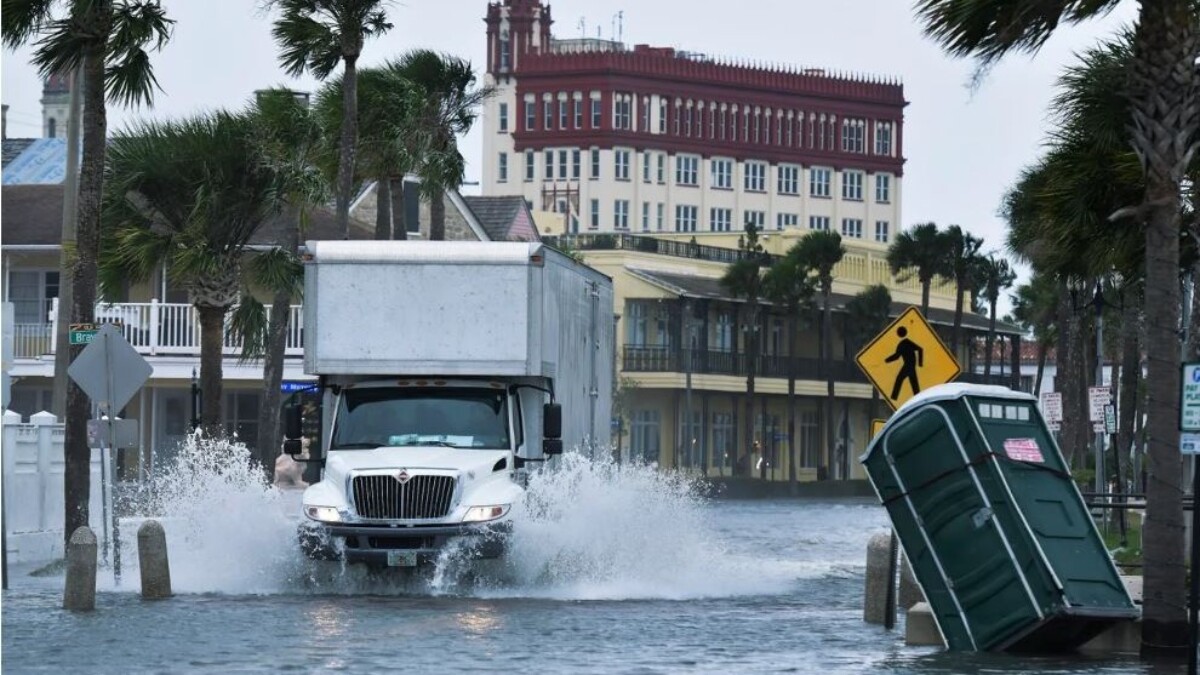Gov. Ron DeSantis on Friday quickly signed a bill aimed at helping shield businesses and insurance companies from lawsuits, a bill sponsored by Sen. Travis Hutson of St. Augustine.
DeSantis formally received the bill (HB 837) on Friday, and the House and Senate websites said he signed it. The bill took effect immediately.
DeSantis announced the proposal at Kenworth of Jacksonville in February. The bill’s supporters said the sweeping changes are needed to rein in litigation that is driving up insurance premiums. Opponents said the changes will harm the ability of injured people to get compensated.
Four Republican senators, including Sen. Jennifer Bradley of Fleming Island, voted against the bill in a 23-15 vote Thursday. One Democratic senator voted for it.
The House approved the bill 80-31 last week. All Republican House members from Northeast Florida voted in favor, and the two Democrats voted no.
The heavily lobbied bill includes a series of steps to try to limit litigation against businesses and insurance companies. An agreement worked out between House and Senate negotiators would:
- Largely eliminate what are known as “one-way” attorney fees in lawsuits against insurers. One-way attorney fees have long required insurers to pay the attorney fees of plaintiffs who are successful in lawsuits. The bills include a narrow exception that would allow one-attorney fees in a type of lawsuit known as a “declaratory action” if insurers totally deny claims, bill sponsors said.
- Reduce from four years to two years a statute of limitations for filing negligence lawsuits.
- Revamp laws about “comparative negligence.” Under current law, juries determine each party’s percentage of fault in negligence lawsuits, with damages awarded based on the percentages. For example, if a plaintiff is determined to be 60% at fault and a defendant is 40% at fault, the defendant would be required to pay 40% of the damages amount. But under the bills, defendants would effectively have to be at least 51% at fault before they could be forced to pay damages.
- Make it harder to pursue “bad faith” lawsuits against insurers. Generally, bad-faith cases involve allegations that insurers did not properly handle and settle claims and can be costly for insurers.
- Help shield owners of property such as apartment complexes from premises-liability lawsuits if people are injured in crimes. Courts would consider the fault of “all persons” — including the criminals — in determining liability.
Critics said that part of the bill would relieve property owners from responsibility for creating dangerous conditions because juries would assign blame to criminals.
Bradley said negligent property owners should not be able to use criminals to shield them from liability. “Crime victims should not be collateral damage in this fight,” she said.
Hutson said 12 other states have such laws and he thinks juries will make the right decisions.
“The goal for this piece of legislation is to bring litigations down but also protect the individuals that need to be protected,” he said.
9(MDEwNzczMDA2MDEzNTg3ODA1MTAzZjYxNg004))






